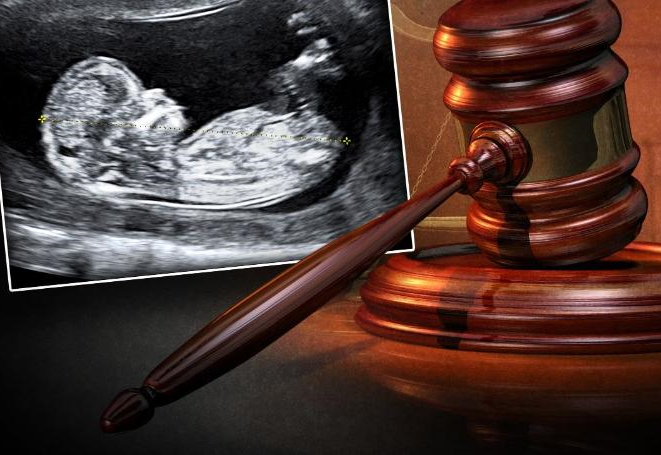A small group of state prosecutors and attorneys general announced Wednesday that they will refuse to prosecute abortionists for killing unborn babies if the U.S. Supreme Court overturns Roe v. Wade and states criminalize abortion.
ABC News reports 63 elected officials signed the joint statement, a project of the organization Fair and Just Prosecution, including California Attorneys General Xavier Becerra, Minnesota Attorney General Keith Ellison and Delaware Attorney General Kathleen Jennings.
In a twist of words, they argued that they will not follow laws or rulings that criminalize abortion because they made an oath to “protect the integrity of our justice system and uphold the Constitution and rule of law,” according to the report. Basically, they will refuse to follow laws and Constitutional rulings that they do not agree with personally.
Miriam Krinsky, executive director of Fair and Just Prosecution, tried to justify the statement, arguing that the prosecutors have a duty to “protect the well-being and safety of everyone in their community.”
Follow LifeNews.com on Instagram for pro-life pictures and videos.
Her statement, however, ignores that abortions destroy the lives of unique, irreplaceable unborn babies — human beings who society also has a duty to protect. Since Roe v. Wade, about 62 million unborn babies and hundreds, perhaps thousands, of mothers have been killed in supposedly “safe, legal” abortions.
Here’s more from the report:
The group said their statement was partly prompted by rising concerns over the passage of laws in recent years in at least a dozen states that they say impose broad restrictions on abortion and are “ambiguous or silent as to whom they would hold criminally responsible.” Under the laws, patients, medical professionals and health care providers could possibly be criminally charged and imprisoned if the Supreme Court’s 1973 landmark decision giving women the Constitutional right to choose to have an abortion without excessive government restriction is struck down.
“Our commitment to not prosecute women who obtain abortions and health care professionals who provide treatment is not predicated on these concerns alone – and, indeed, would hold even if the protections of Roe v. Wade were to be eroded or overturned,” the prosecutors said in their statement.
This also is misleading. States have passed a historic number of pro-life laws in the past decade, and lawmakers have made it very clear that women will not be prosecuted or punished. Criminal prosecution is directed at the abortionist who kills her child.
While pro-life advocates yearn for the day when unborn babies are protected under law and abortions are banned, the pro-life movement has historically opposed punishing women who have abortions — instead focusing on holding abortion practitioners criminally accountable for the unborn children they kill in abortions.
When abortions were illegal pre-Roe, women were not prosecuted; and current abortion bans, such as the ban on partial-birth abortions, do not punish women who have abortions.
Pro-lifers believe the abortion industry preys on women, selling abortions by lying to them about the humanity of their unborn children and the destructive effects of abortion. The pro-life movement also is led by millions of women who had abortions and now deeply regret their decisions to take the lives of their own children.
As ABC News noted, the people who joined the statement represent just a small percent of the more than 2,400 elected prosecutors across the U.S.
The upcoming presidential election and the open U.S. Supreme Court seat have many wondering about the future of abortion on demand. President Donald Trump’s nominee to fill the seat, Amy Coney Barrett, is a strong conservative, pro-life woman. If the U.S. Senate confirms her, the high court would have a 6-3 conservative majority, and more than a dozen abortion-related cases may be headed to the Supreme Court in the coming months.








